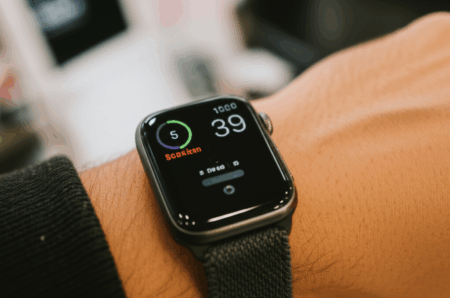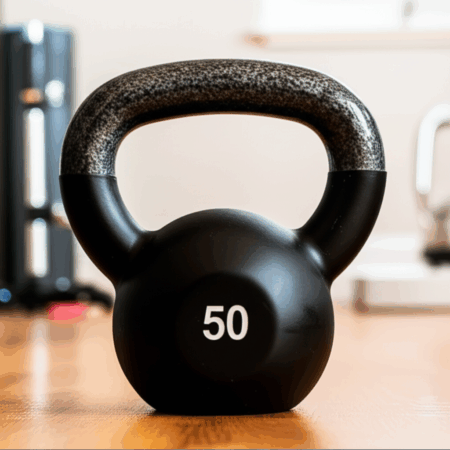Have you ever felt stuck in a fitness rut, unmotivated, and watching your personal training budget drain away? I did. That’s why I decided to ditch my expensive fitness instructor and replace them with AI. The results have been astounding: I’m stronger, more motivated, and saving a ton of money.
The Rise of the AI Fitness Revolution
Artificial intelligence is revolutionizing various industries, and fitness is no exception . AI-powered fitness solutions are becoming increasingly popular, providing personalized workout plans, tracking progress, and offering real-time feedback . With AI-driven fitness apps, virtual coaches, and smart workout devices, achieving your fitness goals has never been more accessible and affordable .
What exactly is an AI Fitness instructor?
An AI personal trainer is a digital tool that uses artificial intelligence to create and adjust your workout plans automatically . These apps analyze your performance, track your progress, and offer personalized workouts based on your goals, body type, and fitness level . Some apps even offer smart features like motion tracking, form analysis, and real-time feedback .
My Journey to AI Fitness
I’ve always struggled with consistency in my fitness routine. The cost of a personal trainer was a significant barrier, and I found it challenging to stay motivated on my own. That’s when I started exploring AI fitness apps.
The Decision
I decided to try an AI-generated fitness app that offered a 12-week fitness plan for a fraction of the cost of a personal trainer . To put it in perspective, personal trainer sessions can range from $50 to $200 per hour, while AI fitness apps typically cost between $13 to $100 per month .
My Experience
The AI fitness app I chose started by asking about my goals, fitness level, and available equipment . Based on my inputs, the app generated a personalized workout plan that adjusted as I progressed . The app provided exercise demonstrations, real-time feedback on my form, and progress tracking .
Surprising Benefits
- Personalization: The AI created workout plans tailored to my specific goals and fitness level . It felt like a real trainer had created them .
- Motivation: The app provided timely reminders and motivational messages, encouraging me to stay consistent with my fitness routine .
- Real-time Feedback: The AI coach guided me through each exercise, providing form tips and motivation along the way .
- Variety: The AI incorporated a variety of workouts to keep me engaged and prevent boredom .
- Cost-Effectiveness: I saved hundreds of dollars compared to hiring a personal trainer .
The Advantages of AI Fitness
Here’s a detailed look at the key benefits of using AI in your fitness journey:
Personalized Workout Plans
AI algorithms can analyze vast amounts of data to create workout plans tailored to your individual needs and goals . AI-driven apps use data like user preferences, fitness goals, and progress to create unique workout plans . Whether your goal is weight loss, muscle gain, endurance improvement, or flexibility, AI can design workout plans that align precisely with these objectives . By analyzing individual metrics like body composition, fitness level, and progress tracking, AI can recommend specific exercises, sets, reps, and rest periods that maximize effectiveness towards achieving these goals .
Adaptive Training Programs
AI algorithms can adjust workout plans in real-time based on your performance . If you are consistently struggling with a particular exercise, the AI can modify the workout to reduce the intensity or suggest alternative exercises to target the same muscle group . Conversely, if you are excelling, the AI can increase the challenge to ensure continued progress .
Cost-Effectiveness
Hiring a personal trainer can be expensive, with session costs adding up over time . AI-powered apps often offer subscription models that are far more affordable, making personalized fitness guidance accessible to a broader audience . AI fitness apps generally offer a more cost-effective solution, while human trainers, though more expensive, provide a level of personalization and interaction that can be invaluable .
Accessibility and Convenience
AI-driven apps and devices are available 24/7, making it easier for people to fit workouts into their busy schedules . There’s no need to book sessions or travel to a gym—your virtual coach is always at your fingertips .
Data-Driven Insights
AI excels at collecting and analyzing data . By tracking your workouts, progress, and even diet, AI tools can offer insights that help optimize your fitness routine . They can identify patterns, adjust recommendations in real-time, and provide detailed reports on your performance .
Motivation and Engagement
AI-powered fitness apps can provide timely reminders and motivational messages, encouraging users to stay consistent with their fitness routines and maintain healthy habits . Gamification features, like rewards and virtual trainers, motivate users to stay consistent .
Injury Prevention
AI can also be instrumental in preventing injuries . By analyzing movement patterns through motion capture technology and wearable sensors, AI can detect improper forms and provide real-time feedback to correct them .
The Limitations of AI Fitness
While AI fitness offers numerous benefits, it’s essential to acknowledge its limitations:
Lack of Human Empathy
While AI can analyze data and provide feedback, it lacks the human touch . AI can’t replace the human touch or understand anything about a person other than their physical body and performance . Clients benefit from a human-to-human connection: They can discuss stress levels, problems at work or at home, and energy levels, which can help the trainer modify a workout if necessary .
Personalization Limits
AI can tailor workouts based on data input, but it cannot fully understand the complexities of human motivation, mood, or life circumstances . AI-driven apps may take time to adapt to the user’s changing fitness levels or preferences .
Safety Concerns
A human trainer can correct your form, spot potential injuries, and adjust exercises in real-time . AI’s ability to provide safe, injury-specific guidance is limited .
Motivation and Accountability
While AI-driven apps can provide reminders and encouragement through notifications, they lack the personal touch and accountability of interacting with a human trainer .
AI vs. Human Trainers: A Balanced View
The choice between AI-powered fitness apps and human trainers is more than a one-size-fits-all decision . It largely depends on individual needs, goals, preferences, and financial considerations .
When to Choose AI Fitness
- You value structure, affordability, and convenience .
- You are self-motivated and can adhere to a digital program .
- You are comfortable with technology and data-driven insights .
When to Choose a Human Trainer
- You seek personalized guidance, motivation, and a human connection .
- You need accountability and hands-on instruction .
- You are recovering from an injury or have specific performance goals .
The Hybrid Approach
The future of fitness training is not about AI replacing human trainers but about how AI can enhance and complement traditional training methods . A hybrid model, where AI handles the data-driven elements of training while human trainers provide emotional support, motivation, and expertise, may be the most effective approach .
The Cost of AI Fitness
The cost of developing an AI fitness app varies depending on the features and platform . Creating for Android and iOS separately will inflate costs, while utilizing cross-platform tools may downsize development time and cost .
Here’s a general cost breakdown:
- iOS or Android (Single): $20,000 – $35,000
- Cross-Platform (Flutter/React): $25,000+
The more complex the features, such as motion tracking or AI-driven coaching, the higher the cost to develop the AI fitness app .
Popular AI Fitness Apps
Several AI fitness apps are available, each with unique features and capabilities :
- Fitbod: AI-driven workout plans, real-time adjustments, personalized exercise library .
- Freeletics: AI fitness coach, progress tracking, voice-guided workouts .
- MyFitnessPal: Meal and macro recommendations, workout suggestions, fitness tracker integration .
- Aaptiv: Offers a database of workouts to suit your fitness goals and needs .
- Future: Connects you to a personal trainer virtually .
- Zing Coach AI: Offers personalized coaching, body composition analysis, and real-time feedback .
The Future of AI in Fitness
The future of AI in the fitness world is full of exciting potential . We might see coaching strategies tailored to different needs, whether that’s wellness, athletic performance, or general fitness . Expect even more customization options and a wider global reach, bringing these advancements to people everywhere . Virtual trainers, gamified workouts, and AI-powered devices like smartwatches are just the beginning . AI is set to empower personal trainers by enabling more tailored, efficient, and engaging client experiences . By integrating AI tools into your business, you’ll not only streamline your operations but also elevate your service quality, helping you stand out in a competitive industry .
Is AI Fitness Right for You?
Replacing my fitness instructor with AI has been a game-changer for me. I’m stronger, more motivated, and saving money. However, AI fitness is not a perfect solution for everyone. Consider your individual needs, goals, and preferences before making the switch.
Questions to Ask Yourself
- What are my fitness goals?
- Do I prefer a structured plan or personalized guidance?
- Am I self-motivated or do I need accountability?
- What is my budget?
Final Thoughts
AI is revolutionizing the fitness industry, offering personalized, accessible, and affordable solutions . While AI fitness has limitations, it can be a powerful tool for achieving your fitness goals. Whether you choose to replace your fitness instructor with AI entirely or adopt a hybrid approach, the future of fitness is here, and it’s intelligent.







